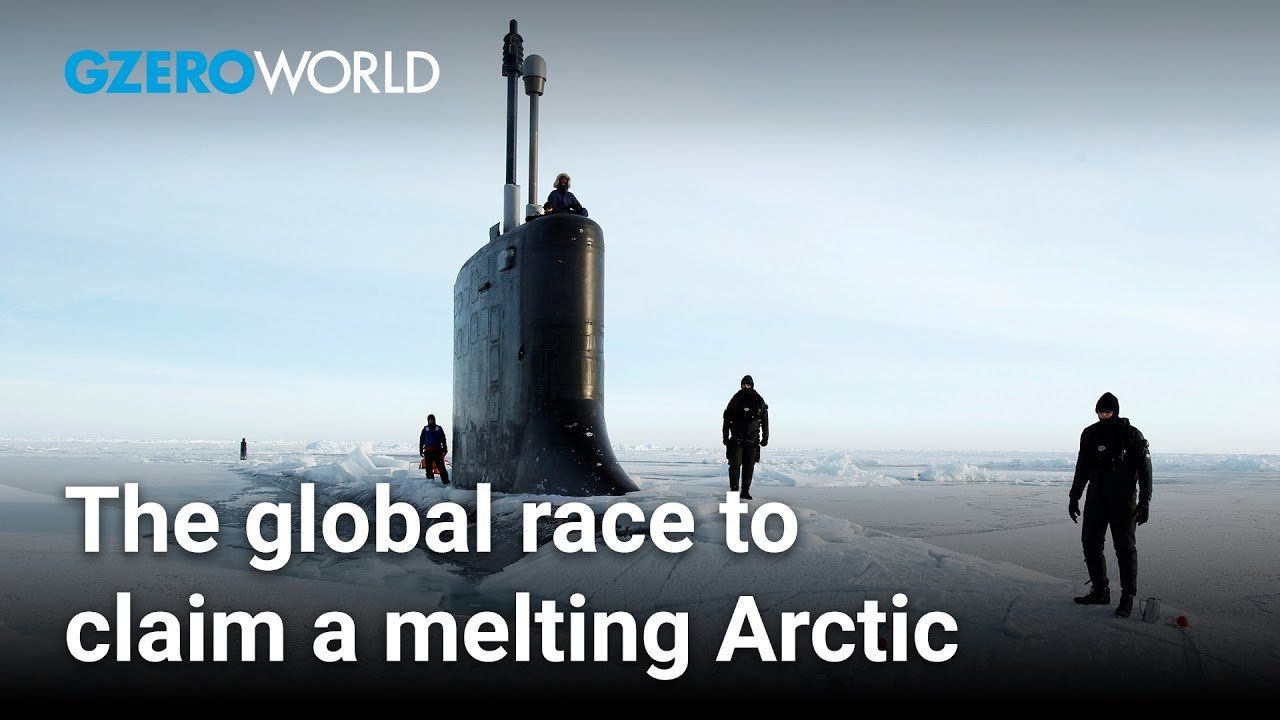August 15, 2024
As climate change warms the planet, the Arctic Circle ice cap will continue to melt. Beyond the ecological implications, a melting Arctic will open up new opportunities for resource extraction, trade routes, and….military operations. Few nations are more keenly aware of this than the United States and its adversaries, Russia, China, and North Korea.
On GZERO World, Ian Bremmer sits with Alaska Governor Mike Dunleavy to talk about how the United States will ensure that its economic and geopolitical interests continue to be met as the Arctic melts. And the threat goes beyond Russia. “China's flexing its muscles in the Bering Strait in the Arctic,” Dunleavy tells Bremmer. “ That's changing as well. So I think as a result of that, you're going to see, I hope to see a different approach by Washington involving our armed forces in Alaska.
Such ramp-ups cannot come a moment too soon, Dunleavy says, since the United States is outmatched when it comes to its presence of the crucial icebreaker ships needed to navigate the arctic passages. “I think what's going to happen is you're probably going to see more discussions on increased navy activity in Alaska,” Dunleavy tells Bremmer, “as well as the need for more icebreakers to joint patrols with our Canadian friends to the East.”
Watch full episode: As the Arctic melts, Alaska's importance grows
GZERO World with Ian Bremmer, the award-winning weekly global affairs series, airs nationwide on US public television stations (check local listings).
New digital episodes of GZERO World are released every Monday on YouTube. Don''t miss an episode: subscribe to GZERO's YouTube channel and turn on notifications (🔔).
More For You
- YouTube
In this Quick Take, Ian Bremmer unpacks the Trump administration’s new national security strategy, particularly its heightened focus on Europe.
Most Popular
- YouTube
Is the AI jobs apocalypse upon us? On Ian Explains, Ian Bremmer breaks down the confusing indicators in today’s labor market and how both efficiency gains as well as displacement from AI will affect the global workforce.
Members of the Uyghurs diaspora gather in front of Alberta Legislature during the protest 'Stand in Support of East Turkistan' to commemorate the 1990 Barin Uprising, on April 6, 2024, in Edmonton, Alberta, Canada. The East Turkestan independence movement seeks the region's independence for the Uyghur people from China. They advocate renaming the region from Xinjiang to East Turkestan, its historical name.
Photo by Artur Widak/NurPhoto
Remember Xinjiang? There was a time, not long ago, when China’s crackdown on the Uyghurs, a Muslim minority group living in Xinjiang province in Northwestern China, was a hot topic. But these days the attention has faded.
GZERO Media is seeking a video producer with strong writing skills and a passion for global affairs. He/She/They will have an opportunity to work with a growing team of talented journalists, producers, and editors crafting unbiased and compelling geopolitical content. This position will last approximately four months beginning in January 2026.
© 2025 GZERO Media. All Rights Reserved | A Eurasia Group media company.
